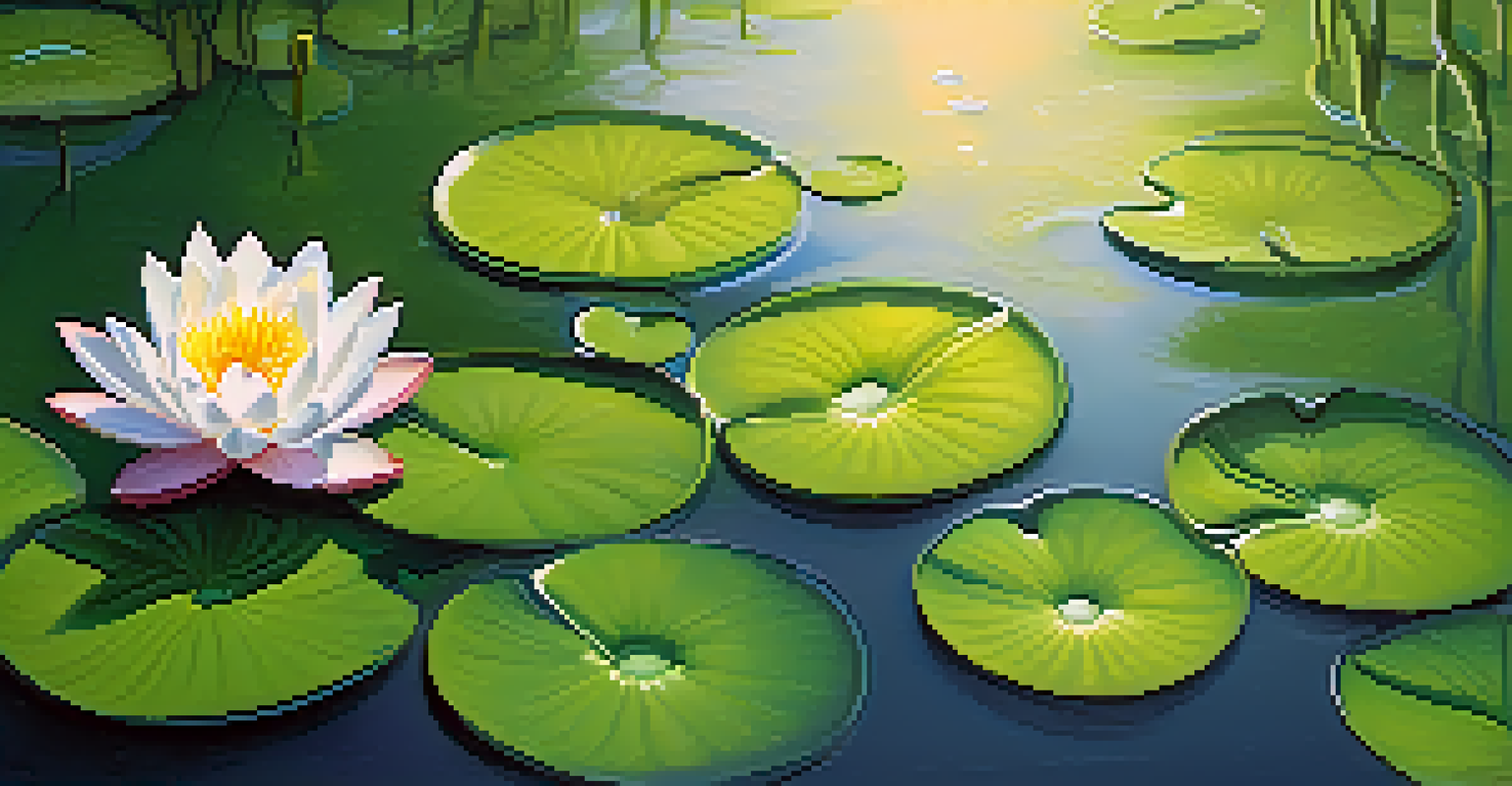The Role of Consciousness in Bridging Science and Spirituality

Understanding Consciousness: A Shared Inquiry
Consciousness is a fascinating topic that intrigues both scientists and spiritual seekers. At its core, it refers to our awareness of ourselves and our surroundings. This shared inquiry into consciousness often leads to discussions about the nature of reality, existence, and the universe itself, bridging gaps between scientific exploration and spiritual understanding.
Consciousness is the experience of a lifetime, and it is the only experience that matters.
For scientists, consciousness raises questions about the brain's functioning, while for spiritualists, it often ties into concepts of the soul or higher self. This overlap creates a unique space for dialogue, where both perspectives can enrich one another. By examining consciousness, we delve into the very essence of what it means to be human.
As we explore this interplay, we can appreciate how consciousness serves as a common thread connecting diverse fields of study. It invites us to question our beliefs, perceptions, and the nature of our experiences, ultimately expanding our understanding of life.
The Scientific Perspective on Consciousness
From a scientific standpoint, consciousness is often studied through neuroscience and psychology. Researchers investigate how brain activity correlates with conscious experiences, using tools like fMRI and EEG to map brain functions. These studies have uncovered intriguing insights, such as how different states of consciousness affect our decision-making and emotional well-being.

However, the scientific approach often grapples with the 'hard problem' of consciousness: understanding how physical processes lead to subjective experiences. This dilemma highlights the limitations of empirical research when it comes to fully capturing the essence of consciousness. As scientists and philosophers ponder this challenge, they inadvertently open doors to spiritual interpretations.
Consciousness Bridges Science and Spirit
The exploration of consciousness invites dialogue between scientific inquiry and spiritual understanding, enriching our grasp of what it means to be human.
Thus, the scientific perspective on consciousness doesn't merely seek to dissect it but also acknowledges its complexity. This acknowledgment can foster a more holistic view of reality, one that embraces both the measurable and the mystical.
Spiritual Insights on Consciousness
In contrast, spirituality often views consciousness as a fundamental aspect of existence. Many spiritual traditions teach that consciousness transcends the physical body, suggesting a deeper connection to the universe. This perspective invites individuals to explore their inner selves through practices such as meditation, mindfulness, and contemplation.
We are not human beings having a spiritual experience; we are spiritual beings having a human experience.
For instance, in Eastern philosophies like Buddhism, consciousness is seen as a continuous process that influences our perception of reality. By cultivating awareness, practitioners aim to transcend suffering and achieve enlightenment. This transformative journey emphasizes the interconnectedness of all beings and encourages a sense of unity with the cosmos.
Spiritual insights into consciousness encourage us to reflect on our purpose and the nature of reality. They remind us that our experiences are not just isolated events but part of a larger tapestry woven by consciousness itself.
Where Science Meets Spirituality
The intersection of science and spirituality regarding consciousness is rich with potential. As scientific discoveries challenge traditional views, they often resonate with spiritual teachings. For instance, concepts from quantum physics, such as entanglement and the observer effect, echo spiritual ideas about interconnectedness and the power of intention.
This convergence fosters a collaborative dialogue where both realms can inform and enhance each other. Scientists might find inspiration in spiritual practices to explore consciousness further, while spiritual seekers can benefit from scientific findings that validate their experiences. This synergy creates a more comprehensive understanding of consciousness as a multifaceted phenomenon.
Intuition Enhances Consciousness Insight
Intuition plays a vital role in understanding consciousness, offering insights that complement rational thought and deepen personal awareness.
Ultimately, this blending of perspectives encourages us to rethink our understanding of reality. It invites us to explore the mysteries of the universe with an open mind, recognizing that both science and spirituality offer valuable insights into the nature of consciousness.
The Role of Intuition in Consciousness
Intuition often plays a crucial role in our understanding of consciousness, bridging the gap between rational thought and deeper awareness. This inner knowing can sometimes provide insights that are not easily explained by logic or scientific reasoning. Many individuals report moments of intuition that guide them in decision-making or deepen their understanding of complex issues.
In spiritual contexts, intuition is often regarded as a connection to a higher consciousness or universal wisdom. Practices like meditation can help individuals tap into their intuitive abilities, fostering a sense of trust in their inner guidance. This intuitive aspect of consciousness can empower individuals to navigate life's challenges more effectively.
By acknowledging the role of intuition, we enrich our exploration of consciousness. It encourages a more holistic approach that values both intellectual understanding and personal insight, creating a balanced perspective on the nature of our existence.
Consciousness and the Nature of Reality
The relationship between consciousness and reality is a profound area of inquiry. Many philosophers and scientists posit that consciousness may shape our experience of reality, suggesting that what we perceive is influenced by our thoughts and beliefs. This idea resonates with spiritual teachings that emphasize the power of intention and manifestation.
For instance, the concept of 'you create your own reality' is prevalent in various spiritual traditions, advocating that our consciousness plays a pivotal role in the outcomes we experience. This perspective invites us to reflect on how our mindset and beliefs impact our lives, encouraging a proactive approach to personal growth.
Reality is Shaped by Consciousness
Consciousness influences our perception of reality, highlighting the importance of mindset and beliefs in shaping our experiences and outcomes.
As we explore this relationship, we begin to recognize that consciousness is not merely a passive observer but an active participant in the unfolding of reality. This realization can inspire us to cultivate a more conscious, intentional way of living, aligning our thoughts and actions with our desired outcomes.
Embracing a Holistic Perspective on Consciousness
To fully appreciate the role of consciousness in bridging science and spirituality, we must embrace a holistic perspective. This viewpoint acknowledges the validity of both empirical research and personal experience, recognizing that each contributes to our understanding of consciousness. By integrating these approaches, we can cultivate a more nuanced appreciation of our inner lives.
Practices such as mindfulness and meditation can enhance our awareness of consciousness while grounding us in the present moment. These techniques not only improve our mental and emotional well-being but also foster a deeper connection to ourselves and the universe. This integration of science and spirituality encourages us to live more fully and authentically.

Ultimately, embracing a holistic perspective empowers us to navigate the complexities of consciousness with curiosity and openness. It invites us to continue exploring the depths of our being, fostering a sense of wonder about the intricate relationship between consciousness, science, and spirituality.